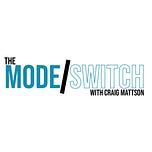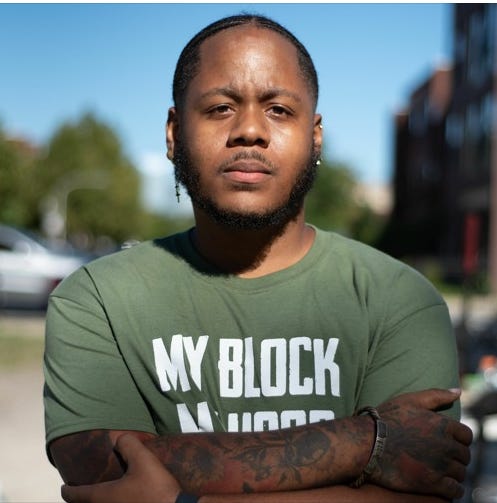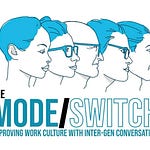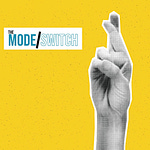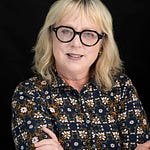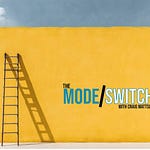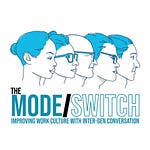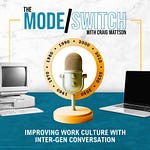Volume 1, Issue 16
It’s easy to think about your vocation as your vehicle. You’re in traffic, flowing with hundreds of other people, but you’re in your own car, sealed off from everybody else. Actually, I think it’s better to think of your workplace as more like a parade flowing through a neighborhood. Here’s why I’m thinking that.
When I reached out to microentrepreneur Devonta Boston to interview him about his Gen Z vocation, he agreed to meet me at 1871, on the twelfth floor of the Merchandise Mart at Chicago’s largest accelerator far from his neighborhood in Chicago Lawn.
1871 is just about the coolest space I ever get to do work in: a broad floor full of tables, couches, and phone-interview booths; a podcast studio; chicly designed conference rooms; and, next to windows overlooking the Chicago River, cocktail-high tables perfect for collaborative work. Those tables were where Devonta and I settled for our conversation.
This was hardly Devonta’s first time in an incubational space: he’s an ambitious 24-year-old businessman, who’s also worked with the folks at the Academy Group and on a Boombox team to open a micro-retail store for his Black fashion line, TGi Movement. (The letters stand for Tranquility, Generosity, and Innovation.) But as we talked, he kept eyeing the room, taking in the work proceeding all around us. He was relaxed but watchful, in contrast with the earbudded and latte-loaded entrepreneurs trying to bend the arc of history towards profitable innovation with just a finger’s movement on their Macbook keypads.
I asked my usual questions about vocational spirituality. He told me he wasn’t particularly religious, though he’d shifted from atheism to agnosticism. “Recently, I've been like, I don't know. It's been an ongoing change.”
I took another look at my list of spiritual practices and, on a hunch, asked him if my list looked like it was designed by a white guy. He said that the thought had occurred to him. I scribbled some more notes in my notebook and thought about my next question.
Then, Devonta interrupted with a query of his own: “How does race play into entrepreneurs coming here?” I looked up from my notebook, a little uncomfortable. He added, “I always feel like 1871 wasn't for black and brown people.”
As it turns out, some research does suggest—I looked it up later—that incubators like 1871 aren’t always great for minority entrepreneurs, at least not as much as for their white “bro” counterparts. Worse, incubators can extract people from their communities out of an “expectation that those who live farther than a reasonable driving distance will move away from home for the duration of the program, which is often several months,” an expectation detrimental to lower-income people of color (and to women) with household or neighborhood obligations. Sure, Devonta conceded, places like 1871 try to be inclusive—especially by giving out scholarships for their programming—but “I'm pretty sure nobody in the neighborhood knows what this thing is.”
We agreed to meet for a follow-up interview in that neighborhood, on 63rd Street, the main boulevard of Chicago Lawn, where Devonta had lived most of his twenty-four years of life. Because we were in the thick of COVID19 at the time, we met on the main boulevard of Chicago Lawn. We found two separate park benches, six feet apart, with an H6 recorder between us, each of us holding a microphone, like we were about to burst into song together. Instead, we were staring across the street at the property he hopes one day to buy—or, as he’s more likely to put it, to buy back. And as we talked, he kept his eyes on the street, reading the signs, noting the happenings. Buses roared by, and delivery trucks, filling out our conversation with smoggy ambient sound. Listening to the recording again, I can hear someone trudging across the street, dragging a trash bin.
I think, because my questions at 1871 had been so individually focused, it took a while for it to register just how important Devonta’s neighborhood was to his vocation. I suspect that I was listening for an inspirational story, a story of spiritual awakenings that could be told anywhere. He can tell that kind of story when he wants to. But most of the time, Devonta’s stories were about paint-and-sip gatherings, open-mic nights, brand showcases, and a real estate venture called “Reclaiming the Hood.”
Devonta’s stories convey a mode of attentiveness. He describes himself as a “real big observer, just seeing how things work.” As we talked, I got the sense of someone beholding 63rd Street in a way that I couldn’t quite manage yet. I use that spiritually inflected language, beholding, because it approaches a richer, more participatory way of seeing. He looks at those storefronts and sees the past and the present together, a once prosperous street teeming with economic life. When I listen to him talk, I hear a yearning for residents to be out and in the streets and under the trees, eating together, playing together, owning their lives together. The stories he really loves to tell are those about what his neighborhood once knew how to do and could learn to do again.
I found out that my community used to have a holiday parade for 26 years and they stopped in 2009…. I was thinking about how 63rd Street used to be the highest economic strip next to downtown, back in the day, and I was like, everything that my community had that was positive was taken away. And I was like, we should just bring back the parade.
We should just bring back the parade. That’s the kind of community action that Devonta wants to circulate, wants to see lived out in his own organization and in his neighborhood. But the parade is a parable in another sense as well.
Think about it: a carnival procession brings out into the open the economic and social goods of a neighborhood, making them joinable, shareable, danceable. Until the parade comes along, it can be easy not to see the resources of a neighborhood. The boarded-up strip malls that look in ruins. The furniture tossed in the dumpster. The green space that’s overgrown with weeds. All that may be inconspicuous economic capital, awaiting someone like Devonta to see it with the right kind of beholding. But besides those economic resources, there are also inconspicuous human networks. The teens circled up on the basketball court. The people that run the corner food-and-liquor. The congregation that meets in the storefront. All that is social capital, and it, too, may go unnoticed—until the parade comes back. Along comes a Devonta, or a whole neighborhood of people with vision like him, and suddenly that economic and social capital rounds the corner and comes into view.
So, let me ask you what I’m asking myself these days: how does vocation relate to place? What does your job have to do with the neighborhoods you drive through? How might your workplace bring back the parade in your community? And if you’re working remotely, how might you take time to be out in your neighborhood each day, walking the sidewalk, and simply letting people know what you do so you and your neighbors can begin to discern the hidden gifts on your street?
Who I’m Learning From
This Is Where You Belong (a book about rethinking our calling in places)
Neighborhood Economics blog (a great source for reflection on place and vocation)
Wendell Berry's Jayber Crow (a book about in which place matters enormously for the development of character; the place almost is a character in the book, as my friend Michael VanderWeele once put it)
Today’s article is a lightly edited excerpt from my book Why Spiritual Capital Matters.
A few of you have been kind enough to take the time to email back to recent articles with your thoughts, reactions, and (for a few of you) excitement that someone was having this conversation. Thank you!
Keep those emails coming. And hey, if you’re enjoying it, can I ask you to share it with a friend or colleague? - Craig

